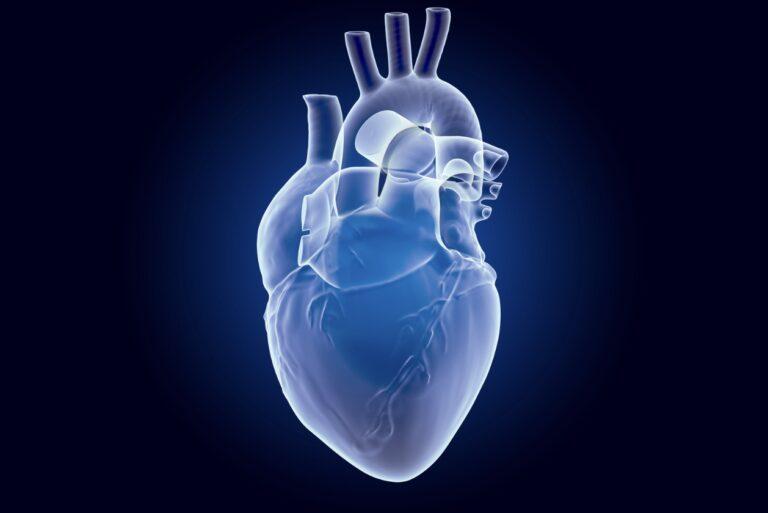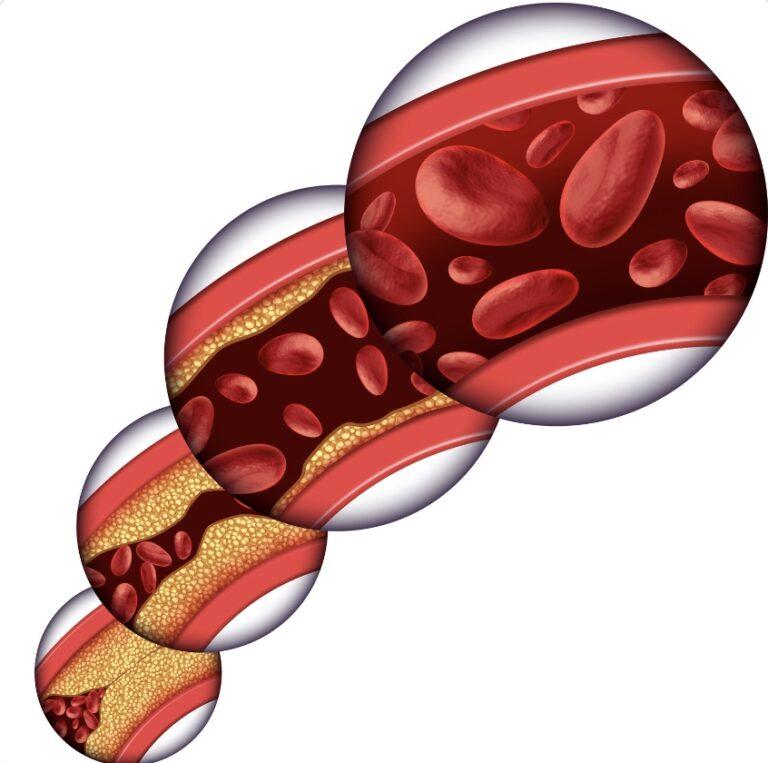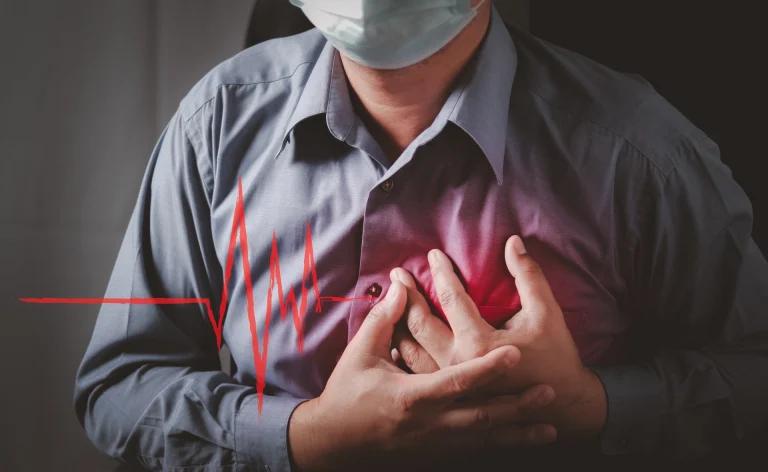Ischemic heart disease (IHD) refers to heart disease that originates from when the heart does not get enough blood and oxygen. Without enough blood this can lead to angina (chest pain) and over time, possibly to heart failure. Let’s find out more about this cardiovascular disease and the steps you can take to prevent it through a heart healthy life.
📝 What is ischemic heart disease?
Ischemic heart disease, also called coronary heart disease (CHD) or coronary artery disease (CAD) is the term given to heart problems caused by narrowed heart arteries that reduce blood flow to the heart muscle.
Ischemic heart disease is a type of heart disease that occurs when arteries become narrow or blocked due to a build-up of fatty deposits of plaque. Plaque is made up of fat, cholesterol, calcium and other substances found in the blood. Plaque build up in an artery is called atherosclerosis. Although the narrowing can be caused by a blood clot or by constriction of the blood vessel, most often it is caused by a build up of plaque. If a piece of the plaque breaks off, this can cause a blockage, cutting off the blood supply to the heart, causing a heart attack.
👍 Steps for prevention
Adopting a healthy lifestyle is a primary prevention. Lifestyle changes can be modified almost immediately for disease prevention or controlling existing coronary artery disease to reduce risk of complications. Lets take a look at them.
Quit smoking
Smoking is considered a high risk factor for heart attacks. Also steer clear of secondhand smoke. If a household member is a smoker, help him or her find ways to quit.
Reduce or cut out alcohol
Heavy drinking can have a number of negative effects on your health, such as high blood pressure, contribute to high triglycerides, irregular heart beats and obesity. In the short term, alcohol can lead to impaired judgment and coordination, slurred speech and blurred vision. In the long term alcohol can increase your risk of developing chronic health problems such as heart disease. It can also damage your brain, leading to problems with memory and cognition. Additionally, drinking excessively can disrupt your sleep and contribute to a decline in your mental health. If you don’t drink, don’t start.
Eat heart healthy foods
Making healthy food choices can have numerous health benefits. Not only can it aid in weight loss and achieving a healthy weight, but it can also help manage blood glucose levels. By adopting healthy eating habits you can decrease your risk of heart disease, stroke, nerve damage and reduce your cholesterol levels. Additionally, healthy eating habits can prevent or delay the onset of pre-diabetes.
When making healthy food choices opt for high-fibre foods and whole grains as they can help regulate blood sugar levels. Aim for an eating plan that’s low in saturated fats and trans fats, and higher in monounsaturated and polyunsaturated, which are found in olive oil and fish. Say no to processed foods and sugary drinks that are often packed with calories. Instead, choose healthy protein sources such as lean meats, fish or beans. A healthy diet can help protect the heart, prevent hypertension (high blood pressure) and high cholesterol, and lower the risk of type 2 diabetes.
Move your body daily
Incorporating regular physical activity into daily routines is vital for maintaining a healthy weight and reducing the risk of weight-related health problems such as heart disease. Engaging in aerobic exercises, strength training and flexibility exercises can help burn calories, build muscle, improve cardiovascular health, and enhance overall well-being. It’s recommended to aim for at least 150 minutes of moderate-intensity aerobic activity or 75 minutes of vigorous-intensity aerobic activity per week.
Achieve and maintain a healthy weight
Getting to and maintaining a healthy BMI (Body Mass Index) is essential for overall well-being. Being overweight or obese significantly increases the risk of high blood pressure. Hypertension is a major risk factor for cardiovascular diseases such as ischemic heart disease and stroke. Excess weight places additional strain on the heart, leading to increased blood pressure and the potential for damage to blood vessels. Over time this can result in the development of atherosclerosis, heart attacks and other cardiovascular complications.
Reduce stress
Some stress is unavoidable in life. When you are stressed, you are more likely to drink alcohol, eat unhealthy foods, sleep badly and be less active. These are all factors linked to an increased risk of cardiovascular disease. During stressful times the body produces hormones like adrenaline which can make your heart temporarily beat faster and work harder. When this happens the blood vessels narrow, and your blood pressure goes up. Here are some ways to reduce stress;
- Meditation and mindfulness: These practices can help you focus on the present moment and clear your mind of racing thoughts
- Deep breathing exercises: This relaxation technique encourages taking slow, deep breaths to help relax your body, calm your mind and improve overall wellness
- Yoga: Yoga combines physical activity with deep breathing and mindfulness to help with stress reduction
- Counselling or therapy: Speaking with a counsellor or therapist can help you identify and cope with the sources of your stress
- Join a support group: In a supportive environment, you’ll be able to share your experiences with others who understand what you’re going through. You’ll also have the opportunity to learn from others about how they manage their stress. Most importantly, you’ll know that you’re not alone in your struggle. If you’re interested in finding a support group, your doctor can help you get started
Get quality sleep
People who don’t get enough sleep have a higher risk of chronic diseases such as obesity, high blood pressure, heart attack, diabetes and depression. Getting quality sleep is essential for a number of reasons;
- Develop a stronger immune system
- Repair of cells and blood vessels
- Better mood and energy levels
- Improved brain function
Know your family history
Having a strong family history of heart disease puts you at an increased risk of getting coronary artery disease. Talk to family members to better prepare yourself.
Know your three heart health numbers
Knowing your blood cholesterol levels (total cholesterol/LDL/HDL) blood sugar levels, and blood pressure levels puts you in a good position to monitor your heath if you have a family history of ischemic heart disease or have other health conditions, such as diabetes or hypertension. Knowledge is power!
📝 Conclusion
Making lifestyle changes, such as improving your diet and physical activity and others discussed above are simple steps that you can take to protect your heart and help prevent heart disease.
Always speak to a healthcare professional before making changes. Your healthcare provider can help you with creating a healthy eating plan and support you with lifestyle changes.
The American Heart Association have created a programme called Life’s Essential 8. These are eight key measures for improving and maintaining cardiovascular health. Visit their website to find out more.
Sources
- Coronary heart disease – NHS
- About Coronary Artery Disease (CAD) – Heart Disease – CDC
- Ischemic Cardiomyopathy: Symptoms & Causes
- Coronary heart disease – NHS inform
- Myocardial ischemia – Symptoms & causes – Mayo Clinic
- Life’s Essential 8 – American Heart Association
Medical Disclaimer
NowPatient has taken all reasonable steps to ensure that all material is factually accurate, complete, and current. However, the knowledge and experience of a qualified healthcare professional should always be sought after instead of using the information on this page. Before taking any drug, you should always speak to your doctor or another qualified healthcare provider.
The information provided here about medications is subject to change and is not meant to include all uses, precautions, warnings, directions, drug interactions, allergic reactions, or negative effects. The absence of warnings or other information for a particular medication does not imply that the medication or medication combination is appropriate for all patients or for all possible purposes.









